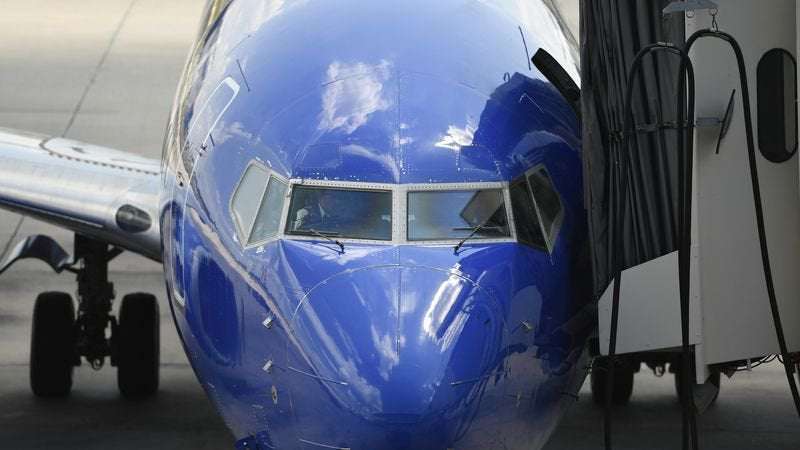A Tampa trucking company employee’s trip to Cleveland to buy several tractor-trailers in September has turned into a legal fight after federal agents at Tampa International Airport seized $181,500 in cash that the man was carrying.
Nearly five months later, Tampa-based FGL Transport, Inc. and its owners, Scott Smith and Michael Rozenberg, have filed a federal lawsuit against the U.S. Department of Homeland Security, the U.S. Customs and Border Protection and officials with each agency because the government won’t return the money.
The saga started when FGL Transport gave employee Boris Nulman $191,500 and a plane ticket to Cleveland to purchase several big rigs. When the cash in a carry-on bag went through a Transportation Security Administration scanner, officers pulled it aside for an inspection. Nulman was allowed to leave later with only $10,000, according to the lawsuit filed in the U.S. District Court for the Middle District of Florida. He never made it to Cleveland to buy the trucks.
Although a federal agent gave Nulman a receipt to document the $181,500, the federal government now says it only confiscated $159,950, according to the filing.
“This is legitimate money,” Rozenberg said. “There is nothing dirty about this. We have evidence to show we took this out of our business account. Something is fishy here.”
The company contends it proved the cash was not tied to illegal activities. The lawsuit also contends authorities violated the U.S. Constitution’s Fourth Amendment for warrantless searches and seizures during prolonged detentions.
Leslie Sammis, a Tampa attorney representing the three men, was in court Thursday and unavailable for comment. Officials with the U.S. Department of Homeland Security and U.S. Customs and Border Protection also could not be reached for comment.
Officials questioned Nulman for 45 minutes at the security checkpoint, then asked him to go to the police station in the airport. When he left the police station, Nulman was permitted to re-book his flight with $10,000. The following day, Nulman, Smith and Rozenberg hired Sammis and later submitted a “verified claim forms” to get the money back.
Weeks later, a Customs and Border Protection official replied, saying the agency was working to seize $159,950 because it was proceeds from “specified unlawful activity” like the manufacture, sale or distribution of a controlled substance. The letter didn’t detail the discrepancy of $21,550.
Using cash to buy pre-owned trucks from owner-operators in the trucking industry is a common practice, the lawsuit contends.
The company planned to buy four trucks to add to its fleet of more than 20. The trucks were not at a dealer or auction. The independent owner didn’t want a bank wire or cashier’s check because of the fraud tied to certified checks in Florida, Rozenberg said.
He said it’s not a crime to carry large amounts of cash on a domestic flight. Nulman did not conceal it and answered questions, Rozenberg said. Nulman, who is Rozenberg’s son-in-law, also provided names and phone numbers to verify the money’s origin, Rozenberg said.
The government, Rozenberg said, has not provided any reason why it believes the money came from illegal activities.
Weeks after the lawsuit was filed, Rozenberg said he and Nulman received letters, saying the Customs and Border Protection revoked their participation in the Global Entry Program. It allows for pre-approved entry into the U.S. and requires an application, fingerprinting and extensive background check. The revocation, he said, is no coincidence.
Rozenberg, an owner and investor in the trucking firm, said Smith manages the daily operation. The money seizure, Rozenberg said, is now starting to financially hurt the firm.
“They are treating us like criminals,” said Rozenberg, who lives in South Florida. “This does not make any sense.”
Times senior news researcher Caryn Baird contributed to this report. Contact Mark Puente at [email protected].

Alaska_Pipeliner on February 14th, 2020 at 16:27 UTC »
The tsa website clearly states you can travel anywhere domestically with any amount of cash. I had to travel with $20k one time and I would rather have it on me than check it. So i looked up the policy.
berserka-cawk on February 14th, 2020 at 16:22 UTC »
Ex-truck driver here. The practice of paying cash for used equipment is pretty common in the industry among smaller companies and owner operators. This also isn’t the first time something like this has happened:
https://www.aclu-nm.org/en/news/dea-takes-truckers-money-aclu-wants-it-given-back
Cervoxx on February 14th, 2020 at 16:06 UTC »
So they robbed him.